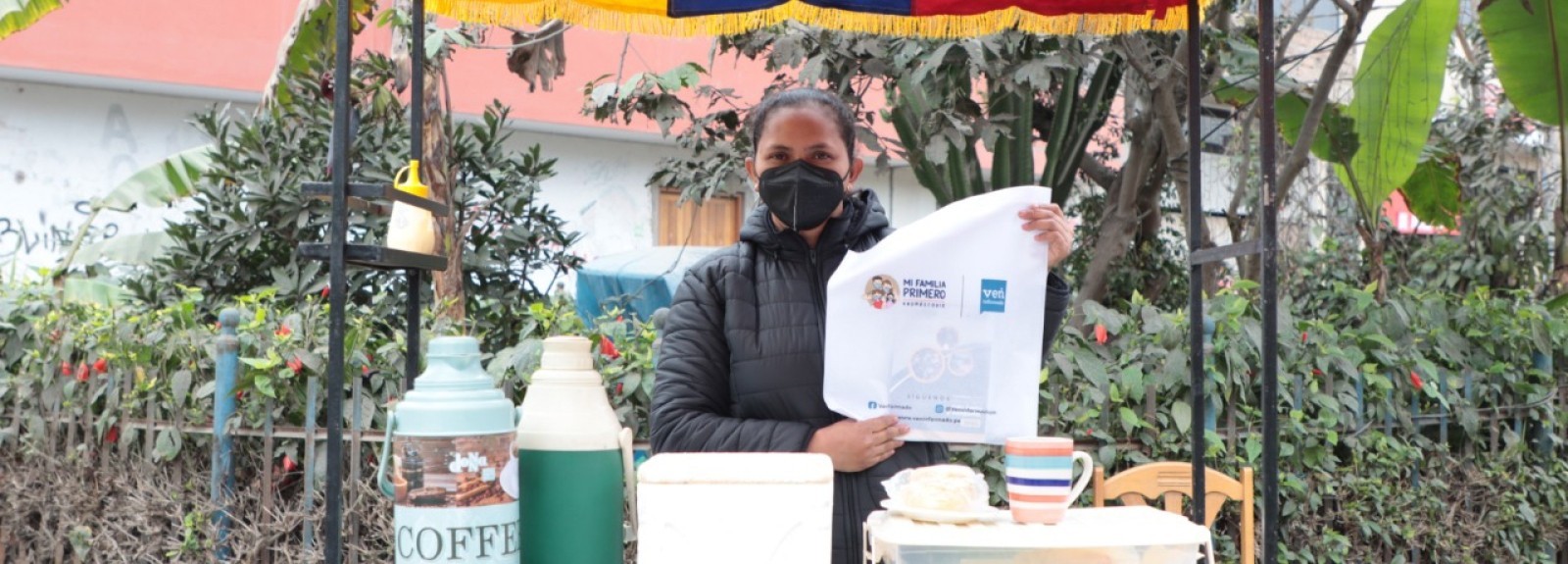This blog was authored by Yesibeth Centeno, Peru Program Manager, who led a session about this work at the 2023 Women in Global Development Leadership Forum. The Spanish version of this blog can be found here.
---
The COVID-19 pandemic heightened the vulnerability of the 1.5 million Venezuelans who have found a new home in Peru since 2018. With strict lockdown measures, irregular migratory statuses, limited access to health care and scarce financial resources, Venezuelan families relied on solidarity, humanitarian support and their unwavering resolve to reinvent themselves.
The study "Venezuelan Women in Lima: Labor Integration, Care Work, and Mental Health," conducted by Antonio Ruiz de Montoya University in collaboration with Corus organization Lutheran World Relief, shed light on the realities faced by Venezuelan women. Twenty percent of female workers were self-employed, and 24% had formal employment. But a staggering 56% worked without a contract, lacking any legal protection to safeguard their rights or gain access to social benefits.
Moreover, the Institute of National Statistics and Informatics (INEI) study on "Living Conditions of the Venezuelan Population Residing in Peru" revealed a significant wage gap between men and women. Migrant women not only earned 7% below the national minimum wage, but they earned 21% less than their male counterparts, with single-mother heads of household particularly affected by wage inequities.
Amidst this challenging context, Lutheran World Relief, in partnership with local organizations Encuentros Servicio Jesuita al Migrante and Equilibrium, leveraged technology to create opportunities for growth and self-sufficiency.
Lutheran World Relief had previously developed the digital platform VenInformado in 2018 to help connect the Venezuelan refugee and migrant population with support for migration issues, reducing the gap in access to information and promoting sustainable solutions for local integration.
In response to growing needs amidst the pandemic, VenInformado activated a livelihoods hub. In addition to providing free content and webinars for the entire community, 420 entrepreneurs joined the Avanza Entrepreneurs School that was offered through the platform, with 84% of the entrepreneurs identifying as single-mother heads of household.
Through the virtual hub, these ambitious women honed their skills in cost and price management, sales and marketing strategies, social media engagement and customer service—essential elements in building a thriving business. Furthermore, driven by their individual passions and projects, 218 entrepreneurs pursued specialized technical courses in fields such as baking, clothing design, personal care and catering services. Two hundred women were awarded seed capital to kick-start their businesses and propel their socioeconomic integration journey in Peru.
Among the many inspiring stories, Keyla Martínez's journey stands out. Originally a police officer in Venezuela, she migrated to Peru with her son in search of a safer and brighter future. To make ends meet, she sold candies on the streets while caring for her son. When she heard about the support for entrepreneurs, she decided to connect with VenInformado and join the Avanza Entrepreneurs School where she transformed her vision of serving traditional Venezuelan breakfasts into a reality.
Equipped with valuable knowledge, training, mentoring and seed capital, Keyla now proudly owns an arepas cart, attracting a loyal clientele. (An arepa is a delicious Latin American cornmeal patty, crispy on the outside and soft on the inside, typically filled with a variety of mouthwatering ingredients like meat, cheese and beans.) Not only has she improved her financial situation, but her son is also thriving in school. Keyla is building the life she always dreamed.
Keyla’s story was not the only entrepreneur success story. And after a year of intense work with the group of entrepreneurs, Lutheran World Relief's commitment did not waver. In the subsequent year (October 2021 - September 2022), we focused on providing follow-up and support to the participants to assess their progress and living conditions.
Undoubtedly, the pandemic presented humanity with immense challenges. However, it also served as a catalyst for new perspectives and innovative solutions. Technology emerged as an indispensable tool, integrating into people's lives, regardless of age or social status. It paved the way for new educational, creative and entrepreneurial endeavors.
Today, the children of these empowered entrepreneurs see their mothers as independent, confident and resilient role models. They are learning a valuable lesson: Your present doesn’t have to define you. You can always reinvent yourself and rise again.


